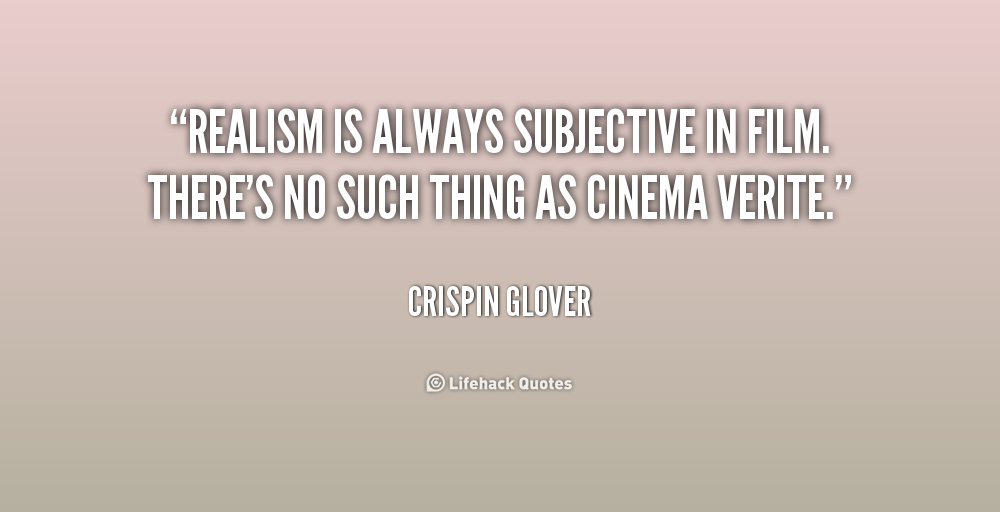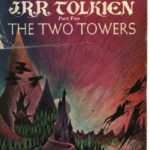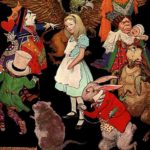Unrealism In Art
Today I am goi ng to share a list of unrealistic things in fiction. And by unrealistic, I mean in the absolute sense of “not like reality”, and not in the vaguely literary sense that some people use the word. Realism, when applied to art, is a slippery term, and some day we need to have an enormous
ng to share a list of unrealistic things in fiction. And by unrealistic, I mean in the absolute sense of “not like reality”, and not in the vaguely literary sense that some people use the word. Realism, when applied to art, is a slippery term, and some day we need to have an enormous argument debate and thrash it out.
Just not today. So here we go, unrealistic (“not like reality”) things in fiction.
The noble thief. The noble thief is a popular convention in fiction, and rarely are we dealing with Les Miserables-type thieves who only stole to feed someone else’s starving children. Usually the noble thief is a handsome, charming career criminal who turns out to have a heart of gold and, quite often, very good aim.
Back in reality, career criminals do not as a rule have hearts of gold; that would get in the way of being career criminals. The old proverb that there is no honor among thieves is much nearer to the truth than many a fictional thief-hero.
 Virtually all the “future” science you ever saw. If you have never considered what would actually happen if anyone followed Dr. Frankenstein’s theory on how to animate new creatures, you don’t want to start now. Suffice it to say that the whole theory is pseudo-science and could never animate anything. Dr. Jekyll and Mr. Hyde is another classic that hinges on pseudo-science.
Virtually all the “future” science you ever saw. If you have never considered what would actually happen if anyone followed Dr. Frankenstein’s theory on how to animate new creatures, you don’t want to start now. Suffice it to say that the whole theory is pseudo-science and could never animate anything. Dr. Jekyll and Mr. Hyde is another classic that hinges on pseudo-science.
The “science” of science fiction is almost always spurious. Writers may sound convincing, as they explain how time travel or lightspeed or what-have-you is possible, but none of it is real. Think about it: If these people really knew how to achieve micro-nanotechnology or faster-than-light travel, do you think they would be writing science fiction?
Beautiful romances that begin with dislike and bickering. We have all seen these romances in fiction. Sometimes the dislike/bickering stage goes on for weeks, or months, or, yes, even years. In actual life, people you cannot like after a certain amount of interaction you probably never will like, and true love rarely begins with antagonism.
Dialogue. No matter what movie you watch or book you read, this will always be one of the most unrealistic things in it. As John Green once observed, “The problem with actual human speech is that it does not take place in the form of sentences.” Dialogue is human speech with all the jerkiness and superfluity edited out: the false starts, the repetition, the um’s and uh’s, the pauses, the sentence fragments, too much detail and too little specificity. Oh, traces of these may remain, but only for effect.
Dialogue is not defined, of course, merely by the normal elements of speech that have been excised from it. It is also defined by the unusual elements that are added to it. Fiction is filled with good lines, witty comebacks, and eloquent statements that many people could not think of extemporaneously and some could not think of at all. In life, there are moments where – when it really matters – we know just what to say. These moments come to us like graces. But few real people possess the impromptu (and evidently effortless) eloquence of fictional characters.
Disney’s “National Treasure”. My brother and I once spent an hour of our lives dissecting this movie and why it was utterly unrealistic and absolutely could never have happened. And you know something? I still love it. I don’t believe it one iota, but I enjoy it immensely.
Because however much we use unrealistic as a criticism, we don’t always truly mind it. After all, if we wanted a perfect facsimile of reality, would we be reading, or watching, fiction?









































I chuckled a lot during this post, especially when you talked about the pseudo-science bit. When I saw the movie I, Frankenstein and they had Dr. Frankenstein’s notebook that made the 21st century experiment work, I just rolled my eyes. But then, I wasn’t watching it for realism. Do any of us watch TV or read for realism. It’s the unrealistic expectations that garner our admiration, our excitement.
When you made the comment about the romantic cliche with people who don’t like each other, I had to laugh too. Although in real-life, when I met this guy with beach blond hair at work I couldn’t stand him at all. He was forever staring at me, telling me what to do, and generally making a pain out of my life. I even remember one time praying to the Lord to not let the guy be there. Well, long story short, we’ve been married now for eight years. He no longer has beach blond hair (poor man, he’s holding to every strand he has with childlike tenacity) but I’m probably one of the rare exceptions to the rule.
I love National Treasure. One of the few Nicolas Cage movies that I watch with fervor!
Thanks for sharing.
Love that juxtaposition!
All the demon/alien/monster-of-the-week attacks are conveniently close to Tokyo, where all the magical girls/giant robot pilots live.
Good one, notleia! Tokyo does seem to be inordinately inundated with monsters! 😉
Becky
I can’t help but disagree slightly with what you said about romances that start with bickering. In some cases it is very unrealistic, but it really depends on what the author does. Really, people can potentially hate each other for years until they are forced into a different situation where they must learn more about each other and see that the other person is not so bad, like in Donita K. Paul’s Dragon Keeper series. This is a great way to also show characters maturing over time, since sometimes two people dislike each other because of prejudices that form from immaturity.